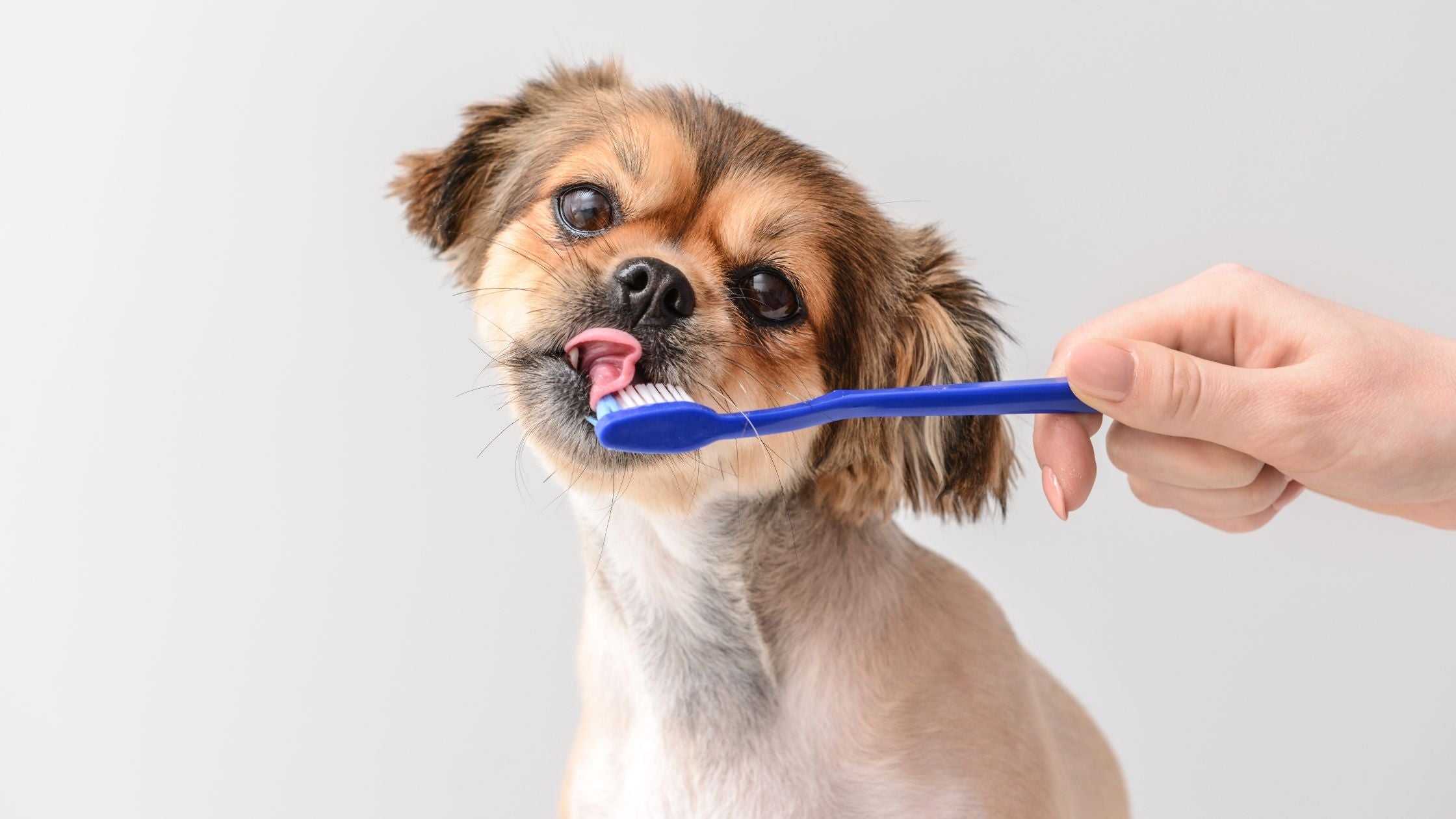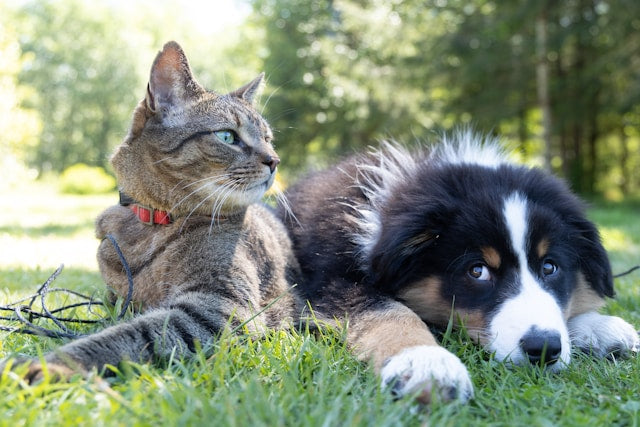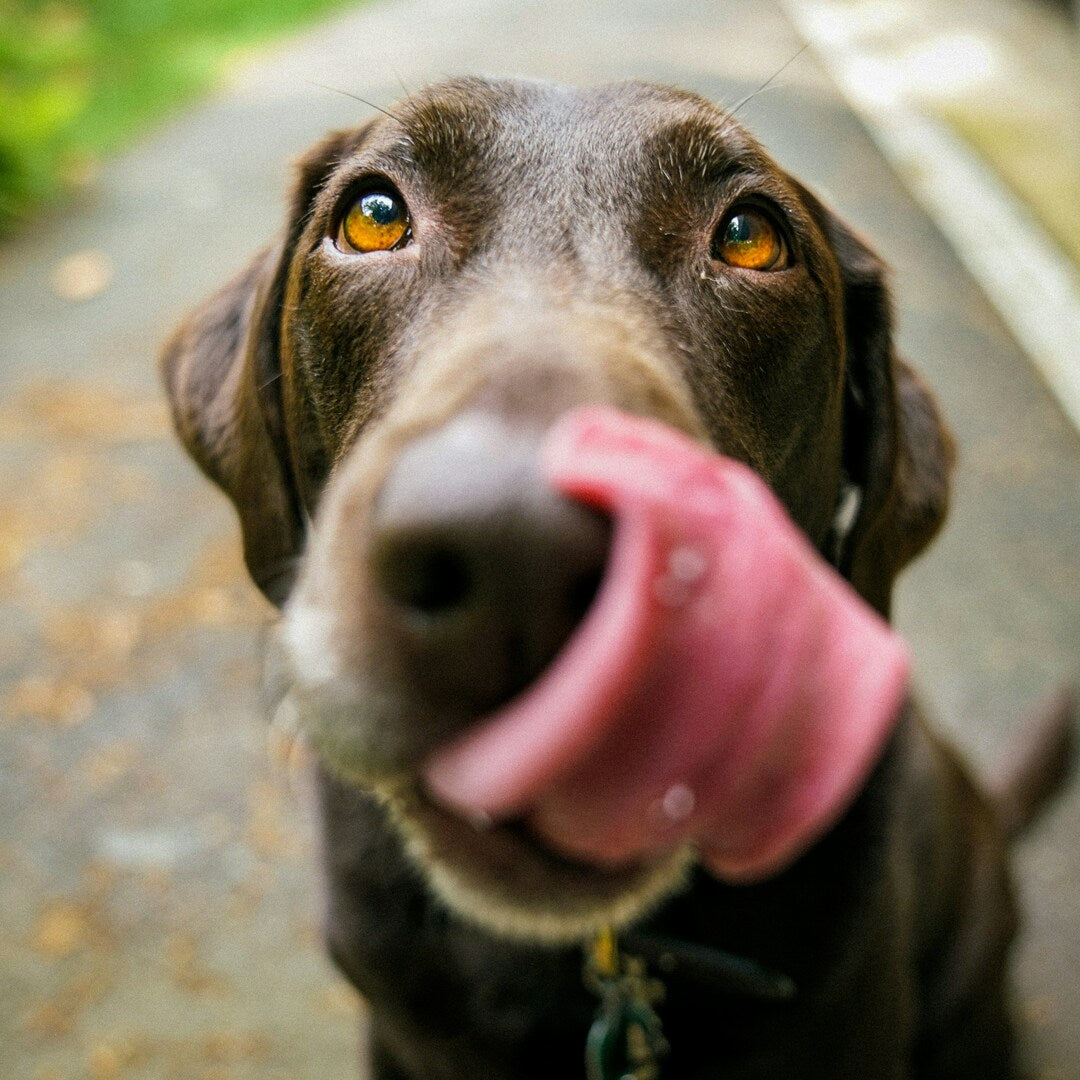A Guide to Pet Dental Care: Keeping Your Furry Friend's Oral Health
Ensure your fur-baby's dashing smile lasts a lifetime. Our comprehensive guide to pet dental care covers why maintaining oral health is pivotal to your pet's overall wellbeing and longevity. From brushing techniques to savvy product picks, this guide is your blueprint to prevent costly oral health issues down-the-line.
Our pet’s pearly whites just might be one of the cutest things about them, which is why it’s our responsibility as their pet parents to make sure those teeth stay clean and healthy for years to come.
Here is our guide to pet dental care and the best ways to care for your companion’s precious chompers.
5 Critical Reasons Why Pet Dental Care Is Important
1. May Help Prevent Dental Disease
Dental issues were a common occurrence in my veterinary practice, and it’s mainly because most pet parents aren’t aware that their companions are just as prone to dental problems as we are.
Regular pet dental care may prevent a variety of oral diseases such as periodontal disease (gum disease), gingivitis, and ulcerative stomatitis.
2. Reduces Tooth Loss
Periodontal disease, when left untreated, can lead to painful tooth loss. On top of that, missing teeth can affect your pet's ability to chew food properly, potentially resulting in digestive issues.
By addressing dental problems early on, you may help your pet maintain a full set of healthy teeth, promoting proper nutrition and overall health.
3. Supports Overall Health Impact
A pet’s oral health can have a significant impact on their overall well-being. Poor dental hygiene can lead to infections that result in systemic problems, affecting vital organs such as the heart, liver, and kidneys.
By maintaining good dental health, pet owners contribute to their pets' longevity and quality of life.
4. Promotes Fresher Breath
There are few things worse than giving your pet some love just to be greeted by a mouthful of bad breath. Luckily, this common issue can be very easily resolved with regular pet dental care.
That way, you can go right back to your cuddle sessions without fear of bad breath spoiling the fun.
5. Prevents Costly Treatments
By taking care of your pet’s dental care now, you could be saving yourself from paying for costly oral treatments down the line.
Many health problems caused by poor dental health require surgeries and extractions, which as you may have already guessed, are quite costly. It’s better to start investing in your pet’s dental care immediately to reduce the chances of your furry friend developing oral health issues AND having to pay for expensive procedures.
If you have pet insurance, be sure to double-check what their policy is on dental care as many do not cover some dental procedures.
The Best Ways to Improve Your Pet's Dental Health
Regular Brushing
Just as we brush our teeth daily, our pets can benefit from regular brushing. Here is a quick step-by-step guide to keeping your furry friend’s teeth sparkling and healthy:
1. Choose the Right Toothbrush and Toothpaste
If you visit the dental care aisle of your local pet store, you’ll find that there are many different products you can use to maintain your pet’s teeth. From standard toothbrushes to rubber finger brushes, you’ll be sure to find one that is best suited to your buddy’s comfort. Plus, most toothpastes formulated for pets come in flavors they’ll love such as bacon and peanut butter.
If you’re not sure which products to try, call your veterinarian to get their professional opinion.
2. Choose the Right Time
Picking a time when your pet is calm and relaxed can help the experience of brushing their teeth be less stressful for you both. Just avoid choosing to brush immediately after meals since your pet may be less cooperative with a full stomach.
3. Slow and Steady Wins the Race
Start with short sessions to get your pet accustomed to the process and then gradually increase to the frequency you are comfortable with. I highly recommend brushing your pet’s teeth at least once a day, but if that’s not realistic, the minimum recommendation is at least three times a week.
4. Lift Lips and Brush
To start, gently lift your pet's lips to expose their teeth. Begin with the front teeth and gradually work your way to the back. Use gentle, circular motions, focusing on the outer surfaces of the teeth. Pay extra attention to the gum line, where plaque tends to accumulate.
5. Be Patient and Positive
Patience is key when introducing dental care. If your pet resists, take a break and try again later. Also, don’t forget to reward your pet with praise or a small treat after each successful session to create positive associations with tooth brushing.
6. Explore Alternatives
Some pets just refuse to cooperate with a toothbrush, and that’s ok! In that case, consider alternative dental care options such as dental wipes or pads designed to clean a pet’s teeth and gums.
Dental Chews and Toys
There is a plethora of dental chews and toys out there today. These items are designed to help remove plaque and tartar while providing entertainment for your pet. They’re a true win-win for both pets and their owners.
Look for products endorsed by veterinary professionals to ensure they meet safety and effectiveness standards. The best ones are approved by the VOHC (Veterinary Oral Health Council) and sport their seal on the packaging.
Professional Dental Cleanings
Scheduling regular dental check-ups with your veterinarian is an easy way to upkeep your little buddy’s oral health.
Most veterinary practices offer professional cleanings that address plaque and tartar buildup brushing alone may not have eliminated. Your veterinarian can also identify potential issues early on, preventing more severe dental problems in the future.
Balanced Diet
Nutrition plays a crucial role in pet dental health in several ways. Not only can the texture of certain foods cleanse tooth surfaces, but some foods can help maintain tissue integrity, stimulate saliva production, and alter plaque bacteria metabolism.
There are also pet foods formulated to support dental health, containing ingredients that promote clean teeth and healthy gums.
Water Additives and Oral Rinses
Consider using water additives or oral rinses that are specifically designed for pets. These products can help reduce bacteria in the mouth and contribute to fresher breath.
Monitor Behavioral Changes
Pay attention to any changes in your pet's eating habits, drooling, or pawing at the mouth. These can be signs of dental discomfort.
Also, regularly inspect your pet's teeth and gums for redness, swelling, or abnormalities. If you notice anything unusual, consult your veterinarian as soon as possible.
Join the Fera Family and Help Your Pet Thrive
At Fera Pet Organics, we consider pets to be a part of the family. If you agree, then we’d love to have you as a member of our community of loving pet parents. Sign up for our newsletter to get veterinarian-approved pet health tips sent straight into your inbox, deals on our natural pet supplements, and more.
Sources




